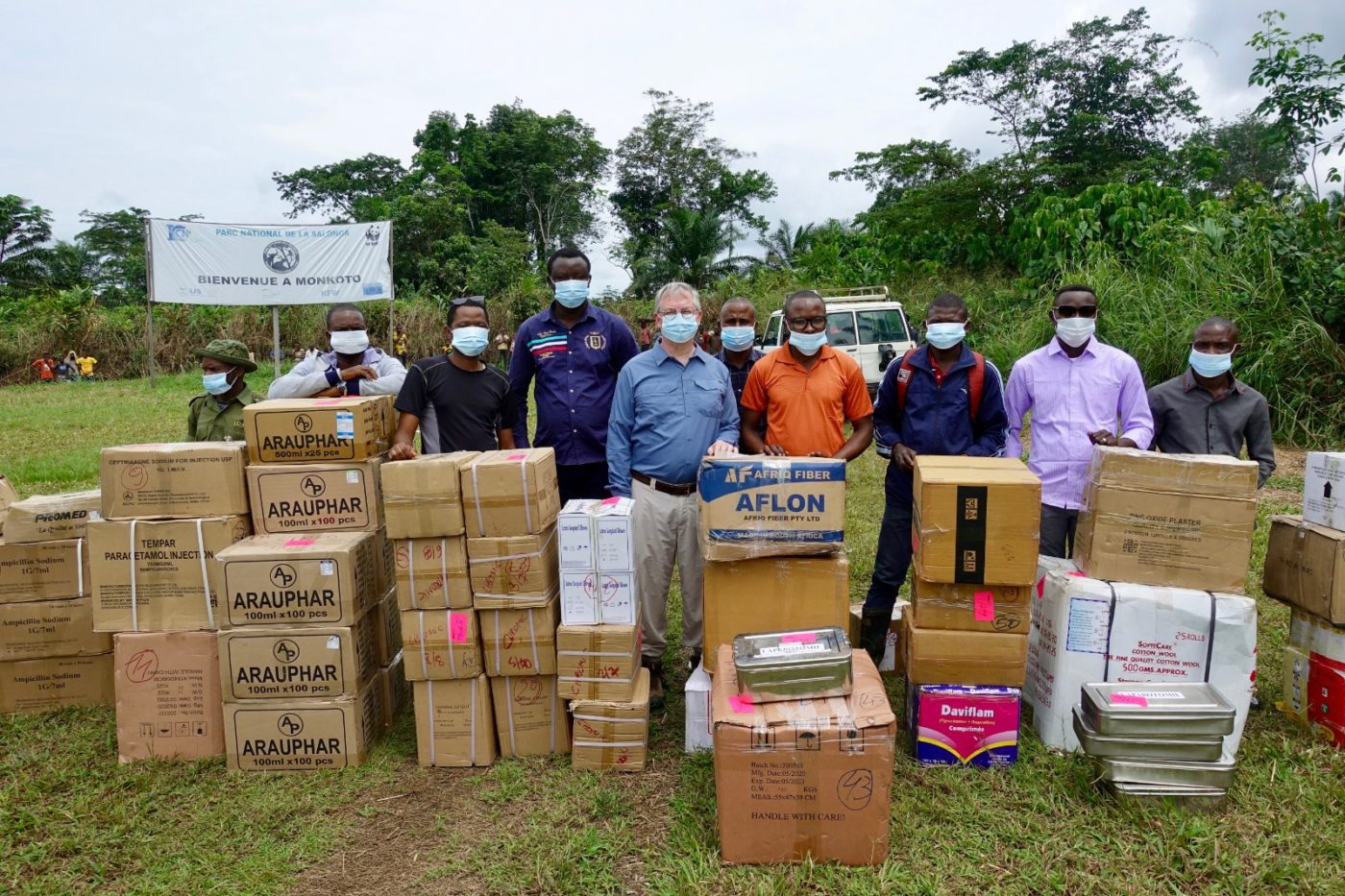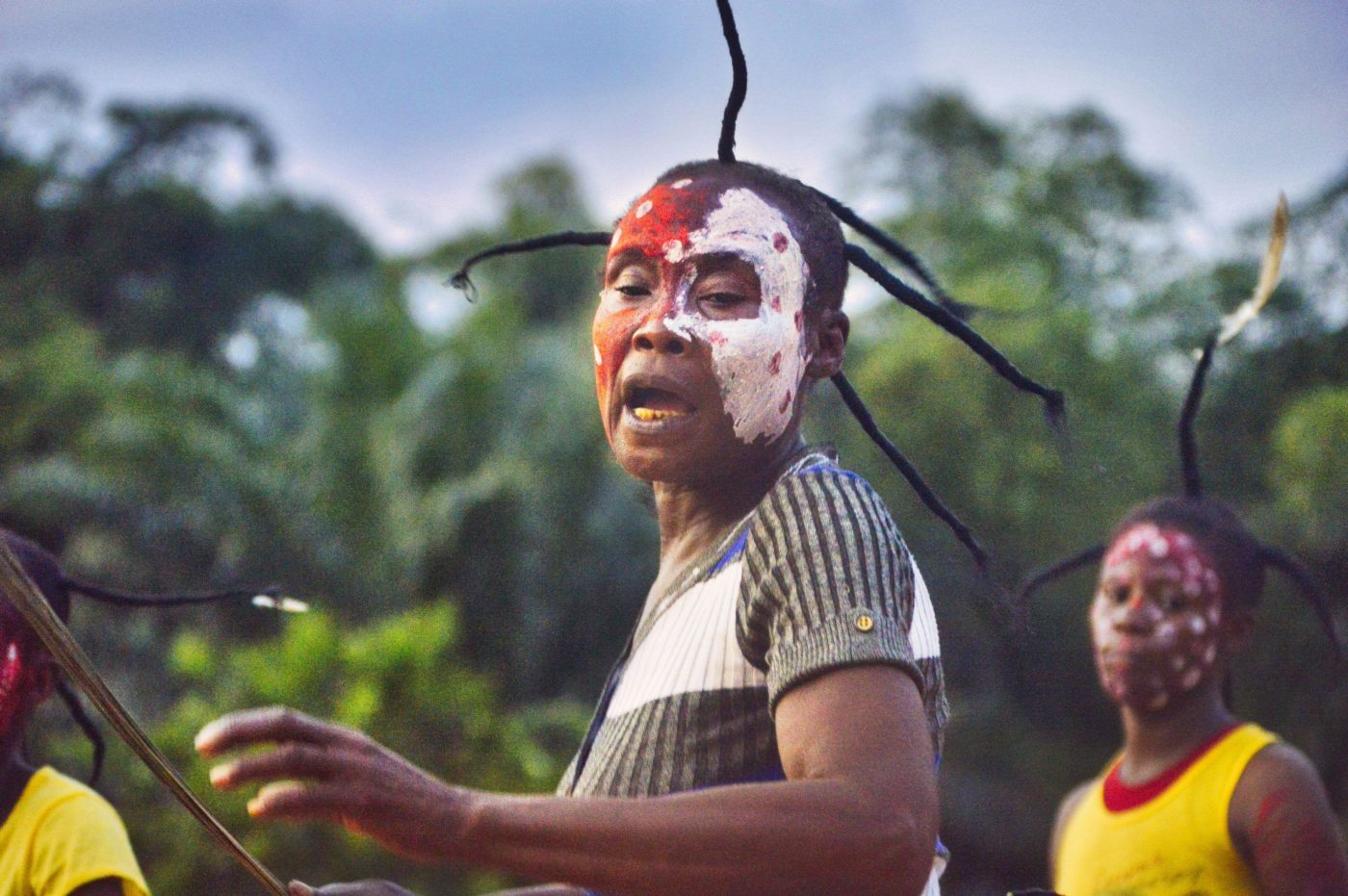WWF and USAID Assist Riparian Populations in SNP Affected by Inter-ethnic Conflicts

On Thursday, March 25, 2021, at the Monkoto airstrip in Tshuapa Province, World Wildlife Fund (WWF) National Director, Martin Kabaluapa and USAID Mission Director, Paul Sabatine, delivered 600 kg of prescription drugs to support victims of inter-ethnic clashes that occurred in the Bianga sector in early February.
This donation—which was valued at $20,000 USD—was purchase with emergency funding from WWF and transported from Kinsahasa to Monkoto by The U.S. Agency for International Development’s (USAID’s ) Salonga-Lukeni-Sankuru Landscape Activity thanks to the generous support of the American people.
In his remarks, Mr. Kabaluapa thanked the Monkoto Territory Administrator and the territory’s partners in Salonga Park for documenting the facts and alerting the provincial authorities, the health zone for caring for the wounded people involved in this conflict who took refuge in Monkoto, and nurses for their work in the Bianga sector.
Mr. Sabatine reaffirmed the willingness of the American people and USAID to support conservation in the DRC through its partners and encouraged the Monkoto Territory Administrator and Chief Medical Officer to care for the affected communities.
The prescription drugs and equipment will replace supplies that were used or looted from health centers, including a center that was recently built by USAID. While they will be used throughout the territory, they will help to provide for the medical needs of the affected communities in Nsambwankoy and Mangilombe.
In early February 2021, clashes between Bantu and Batwa communities resulted in more than 50 deaths and over 100 injuries. In addition, the conflict destroyed homes, schools, and health facilities and displaced village populations.
After learning about the conflict and the related damage from the administrative authorities, WWF and several local civil society organizations called on the Government and the international community to aid the affected populations. WWF hopes that the government and other actors will respond and help with mediation, reconciliation, and emergency humanitarian aid—both food and non-food items.
WWF now plans to supplement its initial, 600 kg donation with an additional 150 kg of medical supplies as well as to rehabilitate the schools that were burned during the conflict.
WWF works closely with USAID and the Institut Congolais pour la Conservation de la Nature to conserve the Salonga National Park in an inclusive manner. These partners work to ensure that the Riparian communities living nearby are involved in park management and can thereby benefit from the natural resources of their land, which surrounds the protected area.<
Also Interesting
Covid 19 – the situation in Salonga
While there are no cases of Covid-19 at Salonga at the moment, precautions have been taken to reduce the risk.
Mission of education and environmental awareness in schools around Monkoto
A team from UGPNS carried out an education and environmental awareness campaign in 30 schools in the park’s surrounding area.
Construction of health centres in the villages of Sambwankoy and Mangilombe: social progress in support of conservation in the Salonga National Park
Health centers built with the support of the Parc in Sambwankoy and Mangilombe will help improve living conditions of these two indigenous communities.
Maintenance of the Monkoto-Mondjoku Road
Three Local Road Maintenance Committees (CLERs) are now active on the Monkoto-Mondjoku road.
